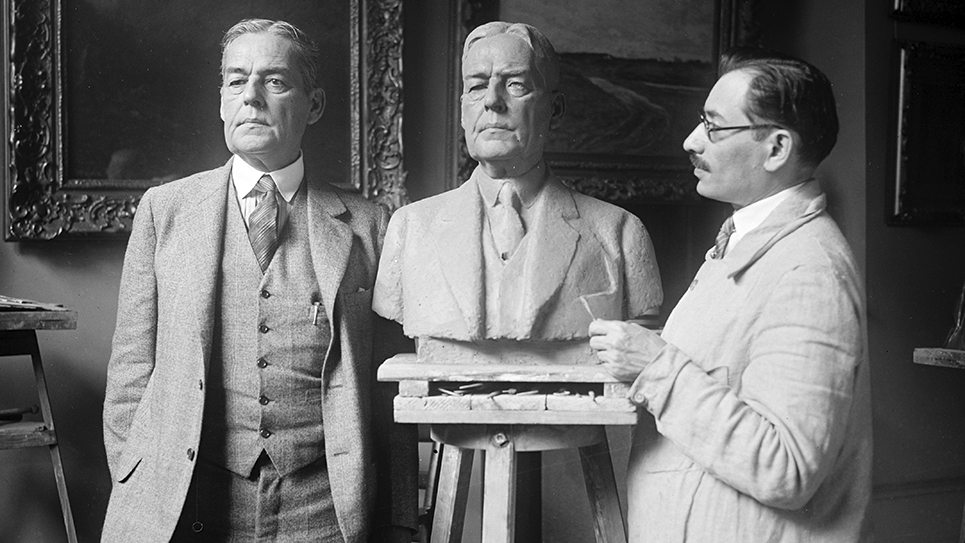A rare disease has touched our family three times, though it would be years before we connected all the dots. First, an adopted daughter couldn’t move her arms. Then, there was a bride who didn’t smile. And most recently a sister in law started choking and couldn’t swallow.
To the best of my memory, I have diagnosed only one case of myasthenia gravis in more than forty years of medical practice. And this is unusual because the prevalence of this rare disease is approximately 200 per million population. As a rough estimate I have treated 140,000 patients during forty years of traditional medical practice, not including throngs of patients I’ve treated in a half dozen medical mission trips in Guatemala. Therefore the probability of an internist encountering a patient with this neuromuscular disease is quite small.
To comprehend myasthenia, picture an electrical outlet on the wall of your home. If you want to light your room, you have to plug the cord of your lamp into the outlet so electrical energy can activate the light bulb. Now, imagine that you want to move your arm. First, you conceive of this movement in your brain. This is known as praxis. Then, an electrochemical impulse is generated and sent down nerve roots to the muscles of the arm. There is a gap between the nerve endings and the muscle cells called the neuromuscular junction. The arrival of the nerve impulse triggers the release of a chemical messenger called acetylcholine (one of a half dozen such neurochemical messengers). Acetylcholine (ACh) then binds to a specific receptor within the neuromuscular junction, ultimately stimulating muscle cells to move your arm.
When our kids were young, and since we now have grandchildren, Becky and I are careful to keep a plastic cover on unused electrical outlets. Like all humans, kids are curious and if adults are not careful to use plastic covers, kids will stick things into an electrical outlet and kill themselves. Now, imagine the neuromuscular junction in the setting of myasthenia gravis, a situation analogous to electrical outlets. Myasthenia gravis is an immune system disease where antibodies are produced which bind to and “cover” neuromuscular receptors, thus preventing ACh from activating muscle cells. The result is muscle weakness of arms, inability to smile and difficulty swallowing.
The treatment of myasthenia gravis includes medications to increase ACh levels in an attempt to override the blockage at the neuromuscular junction. And since myasthenia is an immune system disorder, agents to suppress the abnormal blocking antibody production is also beneficial. Interestingly, there is an association between myasthenia gravis and tumors of the thymus gland. The thymus gland lies beneath the breastbone and is quite large in newborns. I won’t digress into arcane immune system development, but the thymus is very important in the maturing immune system. The gland normally shrinks as we age, but tumors can develop which produce blocking antibodies and cause myasthenia gravis. If tumors are found in association with myasthenia, and blocking antibodies are measurable, surgical removal of the thymus is often recommended as part of the treatment.
Years ago when I was in a large internal medicine group, my partners referred to my many medical axioms as “Fergisms.” Axioms are principles or truisms. My axioms derive from observations of life and my conclusions of why things are as they appear. I once thought of doing a story around my observations, but decided such might be boring, especially if offered out of context. So instead, I’ve decided to sprinkle Fergisms more liberally within my stories as food for thought.
Years ago I was trying to explain the humanistic concept of empathy to a medical resident who just didn’t get it. I told him that “if he lived long enough he’d experience the aches and pains of his patients” and he’d have more wisdom and empathy for their complaints. His confusion was evident as he furrowed his brow and cocked his head slightly, just as I’ve seen my dog do when trying to triangulate a sound. I finally told him to go and think about it, and I was sure he’d have an epiphany.
My concierge practice business card reads, “Advice, Advocacy and Treatment.” Most of the time I listen to concerns, explain sometimes confusing symptoms or the medicalese of consultants and give advice. Often, my explanations reassure folks and they are fine just watching and waiting. Many times concerns resolve. And if testing becomes necessary a logical plan of evaluation is preferable to directionless worry.
Advocacy is especially important when you’re sick. I’ve been deathly ill and experienced a bureaucratic, compartmentalized medical system and an aloof doctor who projected little concern for me. Fortunately, I found other caring doctors who interceded on my behalf and I had a successful outcome. When you are vulnerable an advocate is essential. Too often people choose expediency and don’t recognize the crucial role of advocacy. Andy Warhol once said everyone desires fifteen minutes of fame. Woody Allen once said 85% of life is showing up. I say, all of life is relationship and being included. If you don’t sense advocacy from your doctor, leave before an inevitable crisis occurs.
And, yes, I sometimes give penicillin as treatment in my concierge practice!
Myasthenia gravis is more common in women and the three patients I described are women. As homage to these stalwart ladies who battle myasthenia, I thought it might be fun to sprinkle a few Fergisms dedicated to and celebrating the fairer sex.
-Women are the glue of civilization. Without them men would be savages.
-A man should never leave the building until he sees his wife precede him. Otherwise, he will only sit in the car and be either hot or cold and frustrated. Guys, they’re still in the building gluing relationships together. Embrace it.
-Women do not need segues in conversations with other women. However, men think in a linear fashion and segues between thoughts are required.
-Women shop; men buy.
-Women have intuition; men have gut feelings.
-Women smell better than men, and they have a keener sense of smell.
-Champagne and pearls go with everything. Guys, remember this at your next anniversary.
And last of all in this confusing world where fitting in and being included is important,
“If you live with someone long enough you’ll become like them.” There’s hope, guys!






